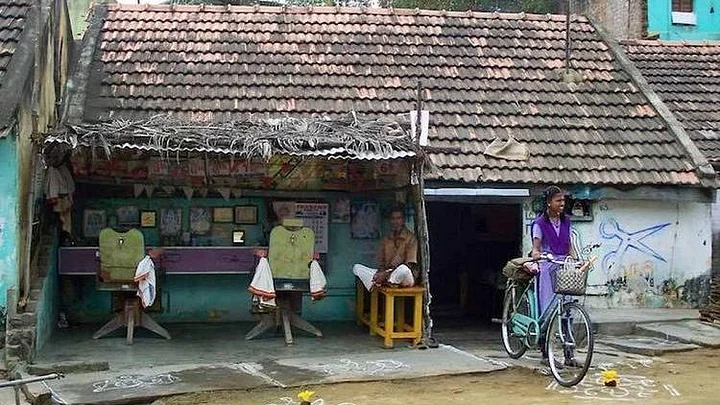A response to a Right To Information (RTI) query in Tamil Nadu shows that a staggering 445 villages still follow untouchability practices to suppress people belonging to the scheduled communities.
Madurai-based RTI activist Karthik (32) had sought information on 22 March this year to seek the prevalence of untouchability practices in Tamil Nadu villages. According to the response provided by the RTI in the last week of April, 445 villages have been identified as atrocity prone and 341 villages as dormant atrocity prone in Tamil Nadu.
Dormant atrocity prone areas are the areas where instances of untouchability were reported earlier, but not in the recent past.
The response from the Home Department shows that Madurai tops the list with 43 villages still following untouchability practices.
Villupuram is second with 25 villages, while Tirunelveli with 24 villages, and Vellore has 19 villages where the practice of untouchability has been reported.
Thiruvannamalai ranks fifth. In this district, villagers from 18 areas follow untouchability practices. In Madurai, 61 (seven in Madurai city and 54 in Madurai district) places have been identified as dormant atrocity-prone villages.
In Chennai, one place has been identified as an atrocity-prone area, while three places have been identified as dormant atrocity-prone areas.
The Situation in Kongu Belt
In western part of Tamil Nadu, eight districts have been identified with 84 villages, which have been found to be practising untouchability.
Salem tops in the western part of Tamil Nadu with 16 villages, seven in the city and nine in the district. Coimbatore ranks next with 15 identified villages. Erode and Tirupur have 13 and 12 such villages.
Nilgiris (5) and Namakkal (4) have lesser atrocity prone villages compared to other districts in the Kongu belt.
What Is Happening in the Southern Districts of Tamil Nadu?
The ten districts in the south contribute almost 159 villages in this list. After Madurai and Tirunelveli, Dindigul ranks third with 16 villages that have been identified as atrocity-prone areas.
Kanyakumari (6) is the only district that has been identified with single-digit villages. Sivagangai, Tenkasi, and Thoothukudi districts were identified with 14 such villages each.
Despite Madurai topping the list, only one social justice awareness meeting was conducted in 2022, till March. In 2018, it was around 27 meetings and in 2019 it was 17.
In 2020, when the pandemic emerged, the number of meetings conducted in the district was six and only eight programmes were conducted last year. The social justice and human rights wing of the police department conducted 28 awareness meetings in Trichy and 14 such awareness meetings held in Nilgiris till March 2022.
Karthik who has been working with marginalised communities for more than a decade does not find the information surprising.
In the recent years, RTI responses to queries by Karthik has revealed that the fund of Rs 927 crore, allocated to the Adi Driavidar welfare department, was unspent and reverted back to the exchequer in the last five years.
While the state government allotted Rs 2.65 crore, between 2012-2013 and 2019-2020 academic years for SC/ST students to pursue higher studies, around Rs 1 crore was unspent and only three students belonging to the SC/ST communities have pursued PhD abroad in the last 10 years.
No students applied for the grants between 2018-2019 and 2020-2021 academic years to pursue PhD in foreign institutes.
According to him, under the SC/ST atrocity act, victims from Tamil Nadu received just Rs 15 lakh ex-gratia in the last four years under the Union government-funded Ambedkar foundation scheme, while the National Crime Records Bureau recorded increased crimes against people belonging to scheduled communities.
Nothing Surprising About These 445 Villages: Karthik
“Last week, Kodikulam village in Madurai won a social harmony award and has been awarded a cash prize of Rs 10 lakh for not practising untouchability. This is a model village and we are really appreciating such initiatives. But, what are the preventive measures we have to stop such inhumane practices? In 2022, we are still talking about untouchability. There is nothing surprising about these 445 villages. The government should come forward to mitigate such issues,” says Karthik.
Interestingly, the RTI reply states that the social justice and human rights wing of the police department, constituted to obliterate untouchability practices, did not receive any funds from the state government between 2015-2016 and 2020-2021 financial years.
“In the past, the same wing promoted the Community Tea Party in rural pockets of Tamil Nadu, where people from different communities used to participate and drink tea. Where are such nice initiatives? People might have forgotten all such things. The government should allocate funds to this wing to function and monitor the issues,” says Karthik.
(Published in an arrangement with The News Minute.)
(At The Quint, we question everything. Play an active role in shaping our journalism by becoming a member today.)
